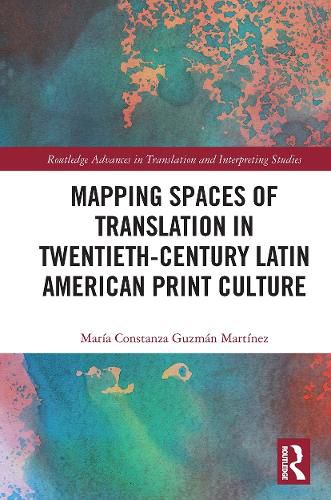Readings Newsletter
Become a Readings Member to make your shopping experience even easier.
Sign in or sign up for free!
You’re not far away from qualifying for FREE standard shipping within Australia
You’ve qualified for FREE standard shipping within Australia
The cart is loading…






This book reflects on translation praxis in 20th century Latin American print culture, tracing the trajectory of linguistic heterogeneity in the region and illuminating collective efforts to counteract the use of translation as a colonial tool and affirm cultural production in Latin America.
In investigating the interplay of translation and the Americas as a geopolitical site, Guzman Martinez unpacks the complex tensions that arise in these spaces of translation as embodied in the output of influential publishing houses and periodicals during this time period, looking at translation as both a concept and a set of narrative practices. An exploration of these spaces not only allows for an in-depth analysis of the role of translation in these institutions themselves but also provides a lens through which to uncover linguistic plurality and hybridity past borders of seemingly monolingual ideologies. A concluding chapter looks ahead to the ways in which strategic and critical uses of translation can continue to build on these efforts and contribute toward decolonial narrative practices in translation and enhance cultural production in the Americas in the future.
This book will be of particular interest to scholars in translation studies, Latin American studies, and comparative literature.
$9.00 standard shipping within Australia
FREE standard shipping within Australia for orders over $100.00
Express & International shipping calculated at checkout
This book reflects on translation praxis in 20th century Latin American print culture, tracing the trajectory of linguistic heterogeneity in the region and illuminating collective efforts to counteract the use of translation as a colonial tool and affirm cultural production in Latin America.
In investigating the interplay of translation and the Americas as a geopolitical site, Guzman Martinez unpacks the complex tensions that arise in these spaces of translation as embodied in the output of influential publishing houses and periodicals during this time period, looking at translation as both a concept and a set of narrative practices. An exploration of these spaces not only allows for an in-depth analysis of the role of translation in these institutions themselves but also provides a lens through which to uncover linguistic plurality and hybridity past borders of seemingly monolingual ideologies. A concluding chapter looks ahead to the ways in which strategic and critical uses of translation can continue to build on these efforts and contribute toward decolonial narrative practices in translation and enhance cultural production in the Americas in the future.
This book will be of particular interest to scholars in translation studies, Latin American studies, and comparative literature.